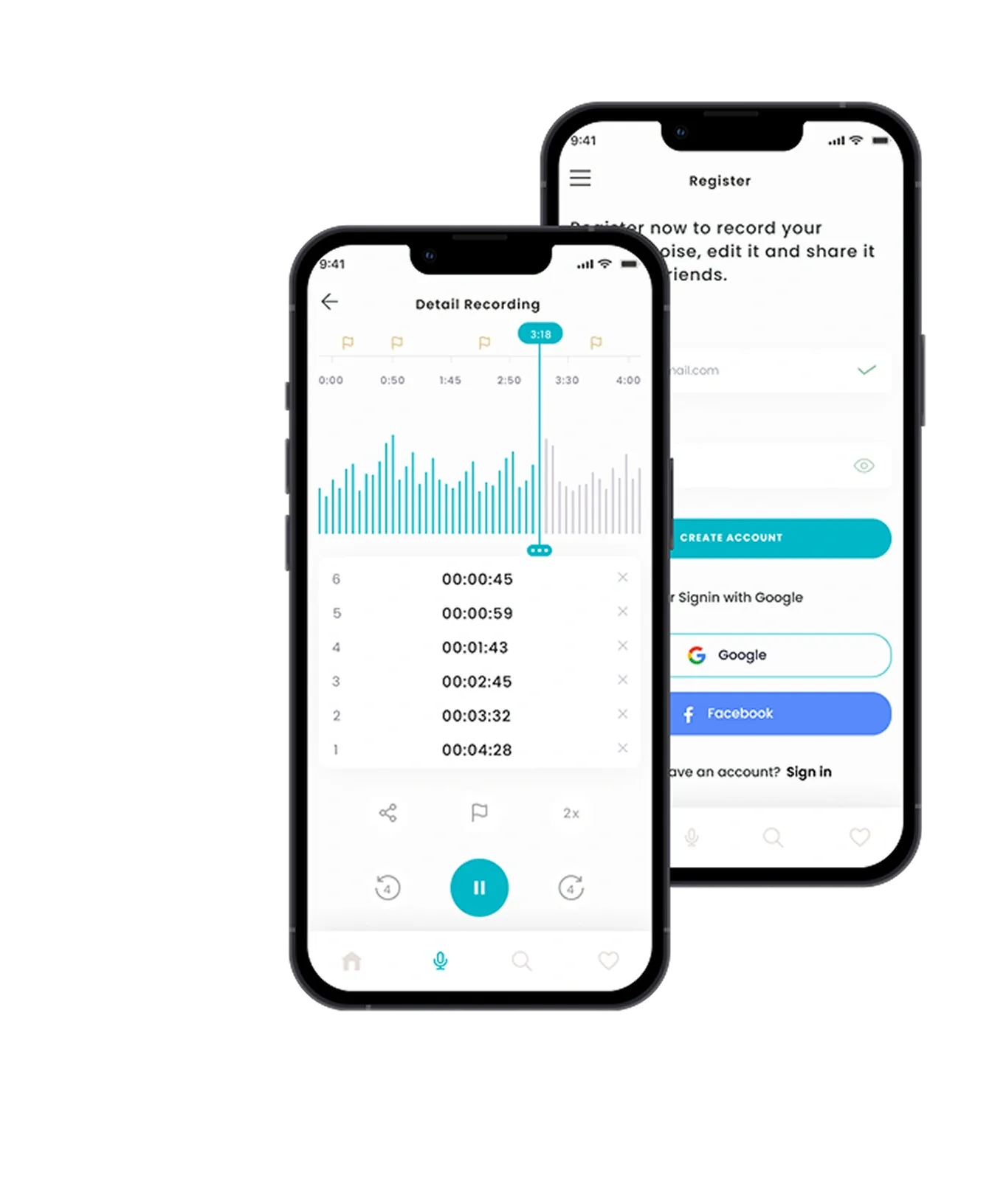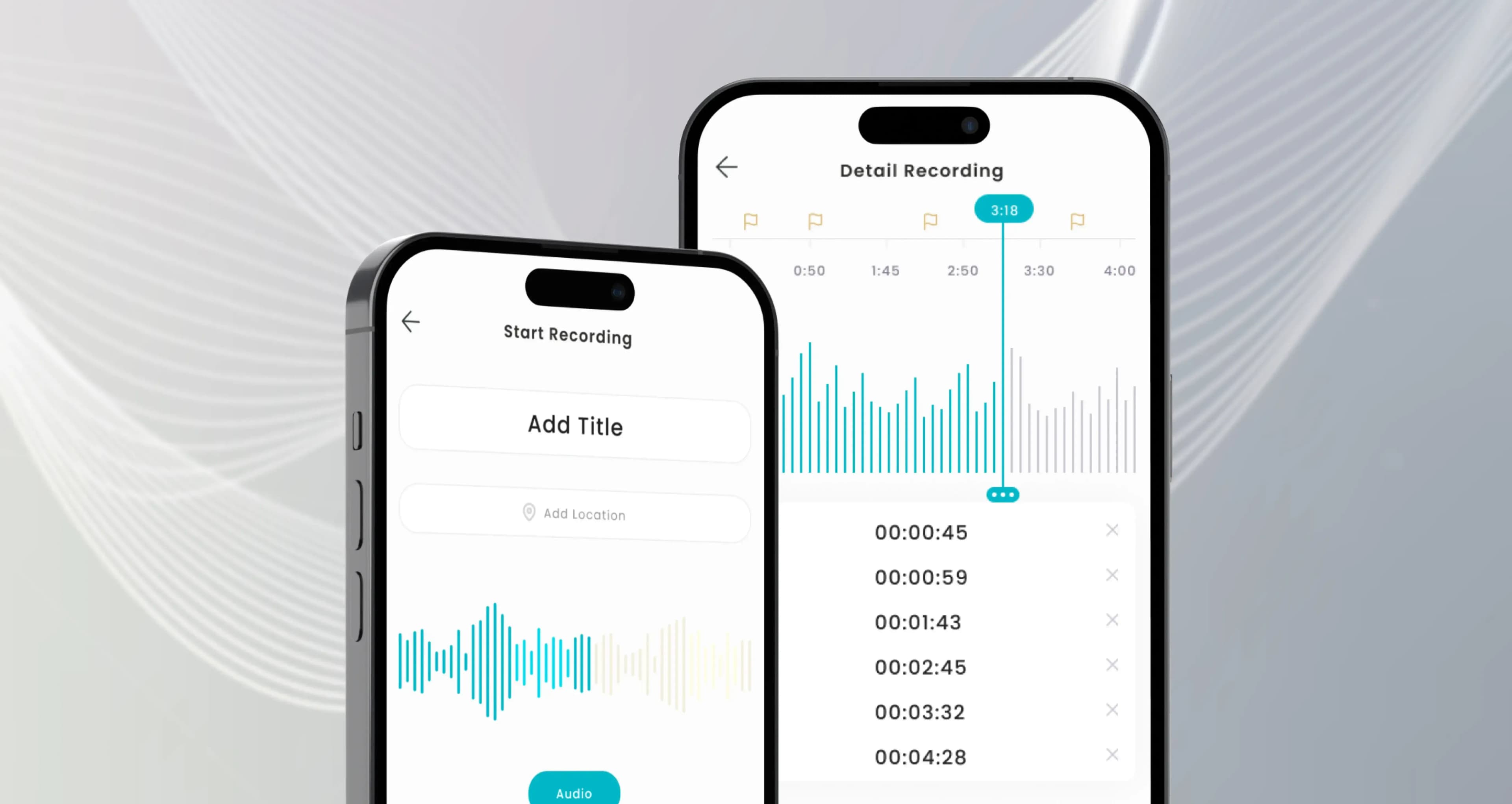
NEXT-GEN SOUND PROCESSING SOLUTIONS FOR SENTIMENT ANALYSIS
75%
faster client issue resolution
80%
improved employee output
2X
more SaaS users

Challenge
Client’s AI/ML gap hindered SaaS development, particularly in emotion recognition, impacting customer experiences.
Solution
Advanced and secure sound processing system adept at accurately discerning speech nuances and cultural cues.
Tech stack
Client
European SaaS provider specializing in customized software solutions for technology, finance, healthcare, retail, hospitality, and telecommunications industries, with a focus on improving customer experiences through advanced sound processing technology.

Challenge
AI/ML skills deficit:
Although the client offered customized solutions for multiple businesses, they lacked internal expertise in sound processing, requiring machine learning, audio analysis, and emotion recognition experts.
Technological advancement:
The manufacturer recognized the need to adopt cutting-edge technology to stay competitive and address changing customer service needs.
Cross-industry service:
To cater to diverse domains needs, there’s a growing demand for flexible and adaptable software solutions to enhance user experiences.

Got a similar software development project on your mind?
Estimate a precise timeframe for its implementation.
Team
1
Back-End Engineer
1
Front-End Engineer
1
AI/ML Engineer
1
Data Engineer
2
QA Engineers
1
Project Manager

Process
Initiation
Modsen led strategic initiatives from the start to complete the project timely and within budget:
Discovery
To arrive at the most suitable sound processing solution, from technical and business perspectives, Modsen’s AI team rigorously evaluated the client’s preliminary idea using advanced research techniques:
User requirements analysis
Conducted thorough requirements gathering and analysis, involving input from both the client and end users, to gain a deeper understanding of the target market and audience.
Project documentation
Developed detailed documentation outlining project scope, objectives, and technical and functional requirements, serving as a reference guide throughout the project.
User-centric design
Designed user interfaces and experiences that aligned with user needs, preferences, and industry best practices, promoting user satisfaction and engagement.
Technical planning
Collaborated with subject-matter experts, including the CTO, to devise a scalable, high-performing technical solution addressing identified requirements and constraints.
Development
Infrastructure setup
The inception of sound algorithm design and implementation began with proper system configuration. Modsen’s AI/ML experts laid the groundwork, employing Python for programming, TensorFlow and PyTorch for creating a dataset and training machine learning models, PostgreSQL for databases, and Git, Docker, along with pertinent testing and debugging tools for seamless development and deployment with zero downtime.
Architecture design
Our team prioritized scalability, performance, and security while architecting the custom audio processing application, tailored for its SaaS environment. We integrated front-end, back-end, database, AI/ML modules, and APIs to ensure efficient handling of user traffic and data loads. Recognizing the diverse needs of businesses, our specialists implemented robust multi-tenancy support for seamless service delivery. Modsen’s configuration management system allowed for feature, workflow, and interface customization to suit each client’s unique requirements, with developer intervention available as necessary.
Agile implementation
Acoustic signal processing experts at Modsen implemented the code in agile sprints, typically two weeks long, with daily stand-ups, sprint planning and reviews, and retrospectives. This process facilitated iterative development, continuous improvement, and adaptability to changing requirements and feedback.
Quality assurance and testing
The emotion recognition solution was rigorously tested by our QA specialists step by step to make sure it met quality standards and functional requirements. Load testing and security testing were also performed to validate the system’s reliability and safety.
Stakeholder demonstration
Throughout the development process, tangible achievements were demonstrated to clients after each sprint, allowing them to track progress, make suggestions, and provide feedback, thus ensuring that the final product met all stakeholders’ expectations.
Deployment and integration
Prior to moving the custom sound processing software to production, it underwent rigorous testing and evaluation on a staging server. Following deployment, stakeholders, including clients and end users, were invited to provide feedback for future enhancements and improvements.
Third-party audits and certification
We conducted third-party audits to guarantee compliance with industry standards and regulations, such as data protection and security requirements. Relevant certifications or approvals were obtained as required by the project’s industry, geography, and target market.
Client acceptance testing
Finally, Modsen conducted thorough user acceptance testing sessions with the client to confirm that the developed audio data analysis and visualization services met their expectations and complied with agreed-upon requirements. The process involved hands-on testing of key functionalities and features, with feedback integrated for final adjustments before deployment to production.
Closing
Successful deployment:
A smooth transition to production ensured stability and reliability.
Final delivery:
Application code and comprehensive documentation, including both technical and business analytics, were provided for future maintenance and enhancements.
User empowerment:
Tailored user guides and training sessions were conducted to facilitate effective feature utilization and user satisfaction.
Solution

We have developed a state-of-the-art sound processing system, which includes the following features:
Real-time speech analysis:
Employing advanced techniques, the solution analyzes speech nuances and cultural cues in real time.
Fourier transformation:
Leveraging the Fourier transformation, the application extracts crucial amplitude-frequency data for emotion classification.
Neural network classification:
A robust neural network enables accurate emotion discernment, supporting the analysis of customer interactions with a high degree of confidence.
Versatile integration:
Modsen’s solution can be integrated with existing systems for unparalleled versatility across a wide range of industries.
Scalable architecture:
Designed with scalability in mind, the architecture of the audio processing solution optimizes performance and adapts to evolving business needs.
Notably, post-development, Modsen’s expert AI team for sentiment analysis remains dedicated to providing ongoing support for subsequent updates, customization, and system integration for new client users.
Result
93%
Emotion classification accuracy75%
Decrease in average customer issue resolution time80%
Improvement in employee performance2X
Growth in the number of SaaS usersLet's calculate the accurate cost and resources required for your project